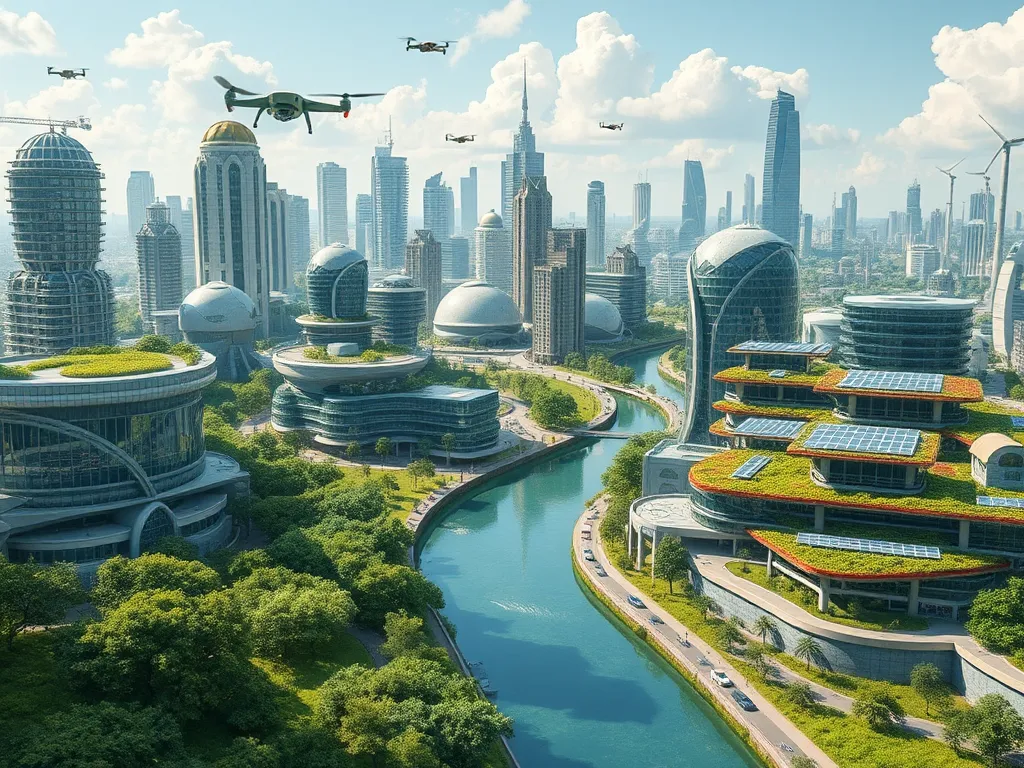Innovative Future Waste Management Strategies for Sustainability

Future Waste Management: Innovations and Challenges Ahead
As the world grapples with increasing waste production, Future waste management has become a pressing issue that requires immediate attention. With an expected growth in urban populations and consumption patterns, effective strategies must be devised to tackle the problem of waste disposal, reduction, and recycling. Future waste management involves a shift towards sustainable practices that not only reduce waste but also generate value from it, ensuring a cleaner and healthier planet for future generations.
To fully embrace Future waste management, communities and industries must adopt innovative solutions that integrate technology, policy, and sustainable practices. This means leveraging advanced technologies, implementing stringent regulations, fostering community involvement, and promoting a culture of sustainability. Collaboration between governments, businesses, and citizens is essential to create an efficient waste management system that can adapt to the changing needs of society while minimizing environmental impacts.
Emerging trends in Future waste management indicate an emphasis on circular economy principles, where waste is viewed as a resource rather than a burden. This shift involves rethinking product design, enhancing recycling processes, and promoting sustainable consumption behaviors. Moreover, the role of artificial intelligence and automation is becoming increasingly vital in streamlining waste management processes, allowing for smarter resource allocation and improved tracking of waste flows.
Furthermore, the future of waste management will likely see a stronger focus on policy and regulatory frameworks aimed at achieving waste reduction goals. Implementing effective laws and incentives can significantly influence waste disposal practices and encourage recycling and composting. This calls for a comprehensive understanding of the challenges that waste management systems face and devising strategic plans to address these hurdles.
In summary, the Future waste management landscape is poised for transformation, driven by technology, societal attitudes, and regulatory shifts. By embracing innovative approaches and fostering community participation, we can pave the way for a sustainable waste management future that balances the needs of commerce, communities, and the environment.
Emerging Technologies in Waste Management
One significant advancement in Future waste management is the development of smart sorting systems powered by artificial intelligence (AI). These systems can analyze waste materials with precision, efficiently sorting recyclables from non-recyclables and minimizing contamination. This technology not only increases recycling rates but also reduces the amount of waste sent to landfills by automating and optimizing the sorting process.
Recent studies funded by the NIH have highlighted significant advancements in cancer research and treatment options.
Another game-changer in Future waste management is the implementation of waste-to-energy conversion technologies. These methods transform non-recyclable waste into usable energy, effectively generating power while reducing the volume of waste sent to landfills. By harnessing energy from waste, communities can address energy needs while simultaneously managing their waste more sustainably.
Additionally, 3D printing with recycled materials is an innovative breakthrough in Future waste management. This technology allows for the creation of new products from waste materials, effectively closing the loop on recycling. It's a sustainable alternative to traditional manufacturing processes, minimizing waste and fostering a circular economy by repurposing discarded materials into valuable products.
Blockchain technology is also making waves in Future waste management by enhancing transparency in waste tracking and recycling processes. By creating an immutable record of waste disposal and recycling practices, blockchain ensures accountability and fosters trust among stakeholders, making it easier to comply with regulations and promote sustainable practices throughout the supply chain.
Automated waste collection solutions are becoming increasingly popular in Future waste management as well. These systems use sensors and data analytics to optimize waste collection schedules, reducing operational costs and minimizing emissions associated with waste transport. By leveraging automation, communities can improve efficiency and responsiveness in their waste management strategies.
Policy and Regulation in Waste Management
Global waste management policies are evolving to address the growing waste crisis. Nations are implementing stricter regulations to manage waste disposal, promote recycling, and reduce plastic use. International agreements, such as the Basel Convention, are helping to standardize waste management practices across borders, ensuring that waste is managed sustainably and ethically.
On a local level, regulations on recycling are becoming more defined, providing clear guidelines for residents and businesses. Many cities are introducing mandatory recycling programs and establishing penalties for non-compliance to enhance participation rates. Local governments play a crucial role in fostering a culture of recycling that aligns with Future waste management goals.
Incentives for waste reduction, such as tax breaks and subsidies for businesses practicing sustainable waste management, have been introduced in many jurisdictions. These incentives not only encourage businesses to adopt greener practices but also empower consumers to be more conscious about their waste generation, fostering a community-wide commitment to waste reduction.
The impact of legislation on waste practices is profound, as effective laws and regulations can significantly shape public behavior towards waste management. Enabling environments created through legislation can drive innovation and compliance, while also addressing barriers to responsible waste handling, thus contributing to a more sustainable future.
Looking ahead, future trends in waste management regulations are likely to focus on enhancing sustainability, innovation, and community engagement. This could include stricter bans on single-use plastics, increased funding for recycling programs, and initiatives aimed at educating the public about sustainable practices. Such trends signal a collective movement towards a more responsible approach to waste management.
Sustainable Practices for Waste Reduction
Circular economy initiatives are becoming a cornerstone of Future waste management. By designing products for longevity, repair, and recyclability, businesses can significantly reduce waste generation. The circular economy model promotes a more sustainable framework, with an emphasis on resource efficiency, responsible consumption, and minimizing environmental impacts.
Composting and organic waste management are critical components of sustainable waste reduction practices. By diverting organic waste from landfills through composting, communities can not only reduce their waste footprint but also create nutrient-rich soil amendments for gardens and farms. This practice fosters sustainable agriculture and contributes to environmental health.
Upcycling waste materials is another innovative approach to waste reduction that emphasizes creativity and resourcefulness. Instead of discarding items, upcycling transforms waste into new, functional products, thereby reducing the need for new materials and conserving resources. This practice empowers individuals and communities to think critically about waste and its potential.
Zero waste lifestyle movements are gaining traction as individuals and communities strive to eliminate waste entirely. This philosophy encourages mindful consumption, waste reduction, and recycling, challenging the throwaway culture prevalent today. By adopting zero waste practices, individuals can significantly reduce their ecological footprint and inspire others to do the same.
Corporate responsibility in waste management is increasingly essential as businesses recognize the need to operate sustainably. Companies are integrating waste reduction strategies into their operations, engaging in responsible sourcing, and taking ownership of their waste streams. This shift in corporate behavior not only enhances brand reputation but also contributes to broader societal and environmental goals.
Community Involvement in Waste Management
Public education on waste reduction is pivotal for the success of waste management initiatives. By raising awareness about the importance of reducing, reusing, and recycling, communities can encourage individuals to make conscious choices that contribute to sustainable waste management practices. Educational programs in schools and outreach campaigns can foster a culture of environmental stewardship.
Community recycling programs play a crucial role in promoting recycling practices. By providing accessible recycling options and resources, municipalities can empower residents to participate actively in waste reduction. Local partnerships with organizations can enhance these programs, making recycling a convenient and integral part of daily life.
Volunteer cleanup events engage community members in hands-on waste management efforts. These initiatives not only promote environmental health but also foster community spirit and collaboration. Through collective action, neighborhoods can beautify their surroundings while raising awareness about the importance of reducing litter and waste.
Partnerships with local organizations can enhance the effectiveness of waste management efforts. Collaborating with NGOs, schools, and businesses can create a comprehensive approach to waste reduction that addresses local needs and leverages community resources. Such partnerships encourage innovative solutions and greater participation from diverse community members.
Engaging youth in waste management initiatives is vital for cultivating the next generation of environmentally conscious citizens. Programs that involve young people in waste reduction activities, such as school recycling competitions or environmental leadership training, can instill values of sustainability and responsible waste management in future generations.
Future Challenges in Waste Management
Urbanization and waste generation are intricately linked, as growing populations in urban areas lead to increased waste production. As cities expand, the challenge of efficiently managing waste becomes more complex, necessitating innovative solutions to address the volume of waste generated while safeguarding public health and the environment.
Climate change impacts pose a significant challenge for waste management systems. Extreme weather events, rising sea levels, and increased temperatures can disrupt waste collection and processing operations, making it imperative for waste management strategies to incorporate climate resilience into their planning.
Technological barriers to waste management persist, as not all communities have access to advanced waste processing technologies. Disparities in technology adoption can exacerbate existing issues, highlighting the need for equitable access to innovation and support for developing regions.
Changing consumer behaviors present another challenge, as shifting attitudes toward sustainability influence waste generation patterns. The demand for convenience can lead to increased packaging waste and disposable products. Future waste management will require strategies that not only address these behaviors but also promote sustainable alternatives.
Global disparities in waste management practices highlight the inequalities present in waste handling as developed nations often export waste to developing countries with fewer resources. Future waste management must address these inequities by investing in infrastructure and capacity-building globally, ensuring that responsible waste management practices are implemented universally.
